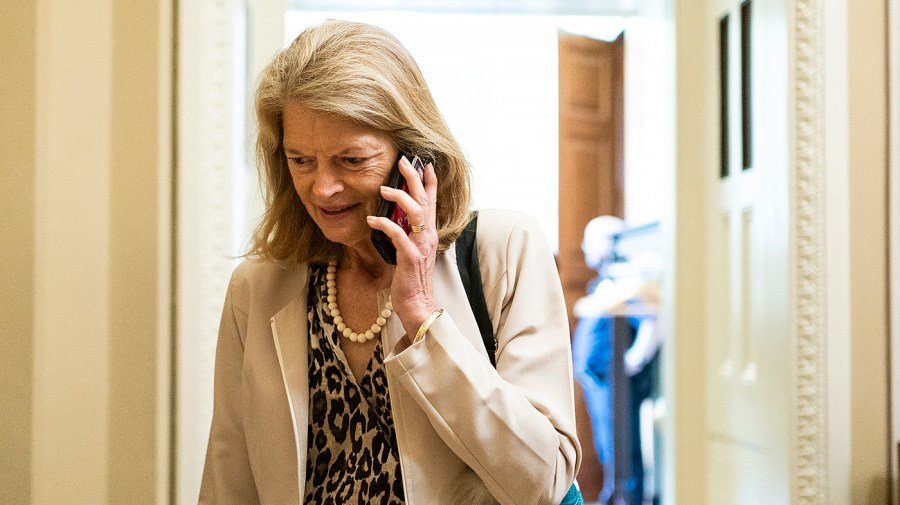
The Senate Appropriations Committee sputtered Thursday as its consideration of the annual Justice Department funding bill was cut short due to a dispute over the Trump administration’s plans to relocate the FBI’s headquarters in Washington, D.C.
The Senate committee met Thursday morning for its first markup of the fiscal 2026 funding season to consider three of the 12 annual spending bills, covering billions of dollars for the departments of Commerce, Justice and Agriculture; the Food and Drug Administration; and the legislative branch.
But they were only able to approve two of the bills — for the Department of Agriculture and Food and Drug Administration, and for the legislative branch — and members say the third, covering the Department of Justice (DOJ) as well as the Commerce Department and science agencies, is now in “limbo” after an amendment was adopted that seeks to block President Trump’s plans to keep the FBI’s headquarters in Washington, D.C.
BestReviews is reader-supported and may earn an affiliate commission.
Amazon Prime Day Deals

“If it stays in there, it’ll tank the bill,” Sen. Markwayne Mullin (R-Okla.) said of the proposal on Thursday, while describing the proposal as a “poison pill.”
He added, “If it doesn’t tank it in the [Appropriations Committee], that’ll tank it on the floor.”
The committee voted 15-14 to adopt language that seeks to block funding from being used to relocate the FBI headquarters from the J. Edgar Hoover Building to any location other than the Greenbelt, Md., site selected by the General Services Administration in 2023.
Sen. Lisa Murkowski (R-Alaska) bucked party lines to join Democrats in backing the proposal, after pressing for more information from the administration regarding its decision to instead move the headquarters into the Ronald Reagan Building — which housed the U.S. Agency for International Development.
“My understanding is that this has been a decision that was made just very recently,” Murkowski said during the markup. “So I, for one, would like to know that this analysis has actually been going on for more than just a couple months, that there’s actually been that effort to ensure that we’re going to move forward.”
However, before the committee could move to final consideration of the bill, Murkowski and a slew of other Republicans flipped from their initial positions of supporting the measure to opposing it following the amendment’s adoption.
Republicans had sought to have the amendment withdrawn to allow members to receive more information from the FBI regarding the relocation plans, but Sen. Chris Van Hollen (D-Md.), the senior appropriator who offered the proposal, declined.
He and other Democrats said the previous decision to bring the FBI headquarters to Maryland was the result of a lengthy, competitive process to replace the current crumbling structure in D.C., accusing the Trump administration of not performing a sufficient analysis before changing the plan.
“The overall bill is a good bill when it comes to funding NASA, NSF, Department of Commerce, but this was a gaping hole,” Van Hollen, top Democrat on the subcommittee that crafted the annual funding bill, told The Hill on Thursday regarding the headquarters issue.
“It’s not just this building. It’s the precedent. It’s the larger question about whether or not the executive branch can unilaterally undo something that Congress has worked on for years on a bipartisan basis,” he said.
However, Sen. Jerry Moran (R-Kan.), who heads the subcommittee that oversees FBI funding, and other Republicans have come out strongly against the amendment, saying the proposal does not fall within the jurisdiction of the committee.
“We should have nothing to do with making decisions about where the FBI headquarters is located. It’s not an appropriations process,” he argued in remarks to The Hill. “We’ve never designated in the committee, and we’re still trying to resolve that.”
Members are hopeful the committee will be able to resume consideration of the funding bill as soon as next week while negotiations continue.
“My hope is that — we’re kind of in the place where I volunteered midway in the hearing where we have an opportunity to take a pause, get a little more information about what it is the administration is seeking to do with the Ronald Reagan Building,” Murkowski said.
“It seems to me that’s kind of the blank spot right now. I think we’re going to have that chance whether it’s just members that are interested in getting further briefing or certainly I’m going to take advantage of it.”
Senate Appropriations Chair Susan Collins (R-Maine), who also changed her initial “yes” vote to “no,” said before the committee recessed it was “very unfortunate” that “one issue is sinking a bill that was completely bipartisan and strongly supported on both sides of the aisle.”
Despite the dispute over the headquarters, Senate appropriators also advanced their first two funding bills for fiscal 2026, greenlighting dollars for the Department of Agriculture, Food and Drug Administration and the legislative branch.
The committee voted unanimously to approve the annual agricultural and rural development funding bill, which it said provides about $27 billion in total funding for fiscal 2026. That includes $8.2 billion for the Special Supplemental Nutrition Program for Women, Infants, and Children (WIC).
The committee also voted 27-1 to provide roughly $7 billion for congressional operations, U.S. Capitol Police, the Library of Congress, the Government Accountability Office, the Congressional Budget Office and other legislative branch operations.
The annual DOJ funding bill is one of a dozen annual funding bills that Senate negotiators hope to send out of committee in the weeks ahead as lawmakers stare down a late September deadline to prevent a government shutdown.
The funding bills seen so far in the Senate committee are more bipartisan in nature than the GOP-crafted legislation proposed in the House.
But as both chambers fall behind in their annual funding work, some are already expecting a stopgap measure will be needed to prevent a shutdown in October to buy Congress more time to strike an eventual bicameral funding deal for fiscal 2026.
Alexander Bolton contributed.






